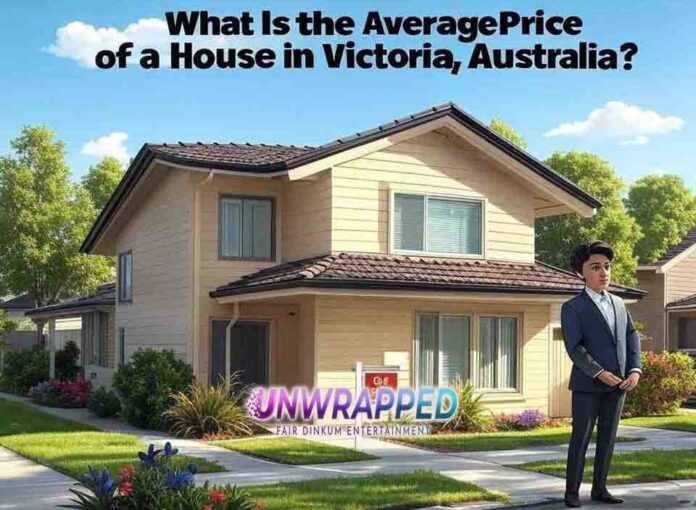Victoria, Australia, is known for its vibrant cities, picturesque regional areas, and high quality of life. As one of the most sought-after states to live in, it’s no surprise that the housing market in Victoria has seen significant growth over the years. But what is the average price of a house in Victoria, and how does it vary across regions?
In this article, we’ll explore the current average house prices in Victoria, factors influencing the market, regional versus metropolitan comparisons, and tips for buyers navigating the state’s property market.
The Average Price of a House in Victoria
As of 2023, the median house price in Victoria stands at approximately AUD $780,000, with significant variations depending on location. In Melbourne, the state’s capital, house prices are notably higher, averaging around AUD $900,000, while regional Victoria offers more affordable options, with median prices closer to AUD $600,000.
Melbourne: A Hotspot for Property Demand
Melbourne, Victoria’s bustling capital, is the epicenter of the state’s property market. Its cultural, economic, and lifestyle appeal has made it a top destination for buyers, both domestic and international.
Average House Prices in Melbourne
- Inner Melbourne: AUD $1.2M–$1.5M (e.g., suburbs like Richmond, South Yarra, and Carlton).
- Middle Melbourne: AUD $800,000–$1.2M (e.g., areas like Essendon, Preston, and Camberwell).
- Outer Melbourne: AUD $600,000–$800,000 (e.g., suburbs like Werribee, Craigieburn, and Cranbourne).
Key Insight: Proximity to the city center, public transport, schools, and amenities significantly impact house prices in Melbourne.
Regional Victoria: Affordable Alternatives
For those looking to escape Melbourne’s high property prices, regional Victoria offers a more budget-friendly option without sacrificing quality of life. Regional towns and cities provide access to natural beauty, community spirit, and growing infrastructure.
Average House Prices in Regional Victoria
- Geelong: AUD $700,000–$750,000.
- Ballarat: AUD $600,000–$650,000.
- Bendigo: AUD $550,000–$600,000.
- Shepparton: AUD $450,000–$500,000.
- Mildura: AUD $350,000–$400,000.
Why It’s Appealing: Regional areas have become increasingly popular, especially post-COVID-19, as remote work allows more Australians to live further from urban centers.
Factors Influencing House Prices in Victoria
Several factors contribute to the variation in house prices across Victoria:
1. Population Growth
Victoria is one of Australia’s fastest-growing states. Melbourne, in particular, attracts migrants and young professionals due to its thriving economy and cultural diversity. This population growth drives demand for housing, pushing prices upward.
2. Economic Opportunities
The presence of robust industries such as finance, education, healthcare, and technology ensures stable job markets in Victoria, particularly in Melbourne. Regional areas like Geelong and Ballarat are also seeing growth in local economies.
3. Urban Infrastructure
Access to public transport, schools, healthcare facilities, and recreational spaces significantly impacts property values. Suburbs with well-connected infrastructure tend to command higher prices.
4. Housing Supply
Victoria faces challenges in meeting housing demand due to land scarcity in metropolitan areas, zoning restrictions, and rising construction costs. Limited supply, coupled with high demand, continues to elevate prices.
5. Government Policies
Incentives like the First Home Owner Grant (FHOG) and stamp duty concessions have encouraged more buyers to enter the market, further increasing demand.
Learn More: Visit the Victoria State Government Housing Website for detailed insights into grants and policies.
Buying a House in Victoria: Key Considerations
1. Determine Your Budget
With the average house price in Victoria around AUD $780,000, it’s essential to assess your financial situation, factoring in additional costs such as stamp duty, legal fees, and ongoing expenses.
2. Choose the Right Location
- For proximity to cultural attractions, employment hubs, and top schools, consider Melbourne’s inner suburbs.
- For affordability and a more relaxed lifestyle, explore regional cities like Geelong or Bendigo.
3. Explore Government Assistance
First-time buyers can take advantage of:
- First Home Owner Grant (FHOG): AUD $10,000 for eligible new home buyers.
- Stamp Duty Exemptions: Available for properties under specific price thresholds.
4. Be Market-Savvy
Keep an eye on market trends and consult reputable sources like Realestate.com.au and Domain to compare properties and prices.
Trends in Victoria’s Housing Market
1. Post-COVID-19 Shift to Regional Areas
The pandemic has accelerated migration to regional Victoria, as remote work becomes more common. This trend has led to a spike in property prices in towns like Ballarat and Bendigo.
2. Demand for Sustainable Housing
Eco-friendly homes and energy-efficient designs are gaining popularity, with buyers willing to pay a premium for sustainable living options.
3. Rising Interest Rates
Recent increases in interest rates have slightly cooled the housing market, making it crucial for buyers to plan their finances carefully.
Tips for Navigating Victoria’s Housing Market
- Do Your Research: Use tools like online property calculators and market reports.
- Consider Future Growth: Look for areas with planned infrastructure projects and growing amenities.
- Work with Experts: Engage a local real estate agent and a mortgage broker to streamline the buying process.
Conclusion: What Is the Average Price of a House in Victoria?
The average price of a house in Victoria is approximately AUD $780,000, with significant variation between metropolitan Melbourne and regional areas. While Melbourne’s house prices are higher due to population growth and economic opportunities, regional towns like Ballarat and Geelong provide more affordable options without compromising on lifestyle.
Understanding the factors influencing property prices and exploring diverse locations can help buyers make informed decisions. Whether you’re looking for a vibrant urban setting or a peaceful regional retreat, Victoria offers a range of housing options to suit different budgets and preferences.
Call to Action
Are you planning to buy a house in Victoria? Share your thoughts and questions in the comments below! Don’t forget to subscribe to our blog for more insights on the Australian property market. If you found this guide helpful, bookmark it for future reference.
See Also: Why Are Houses in Victoria So Expensive?










